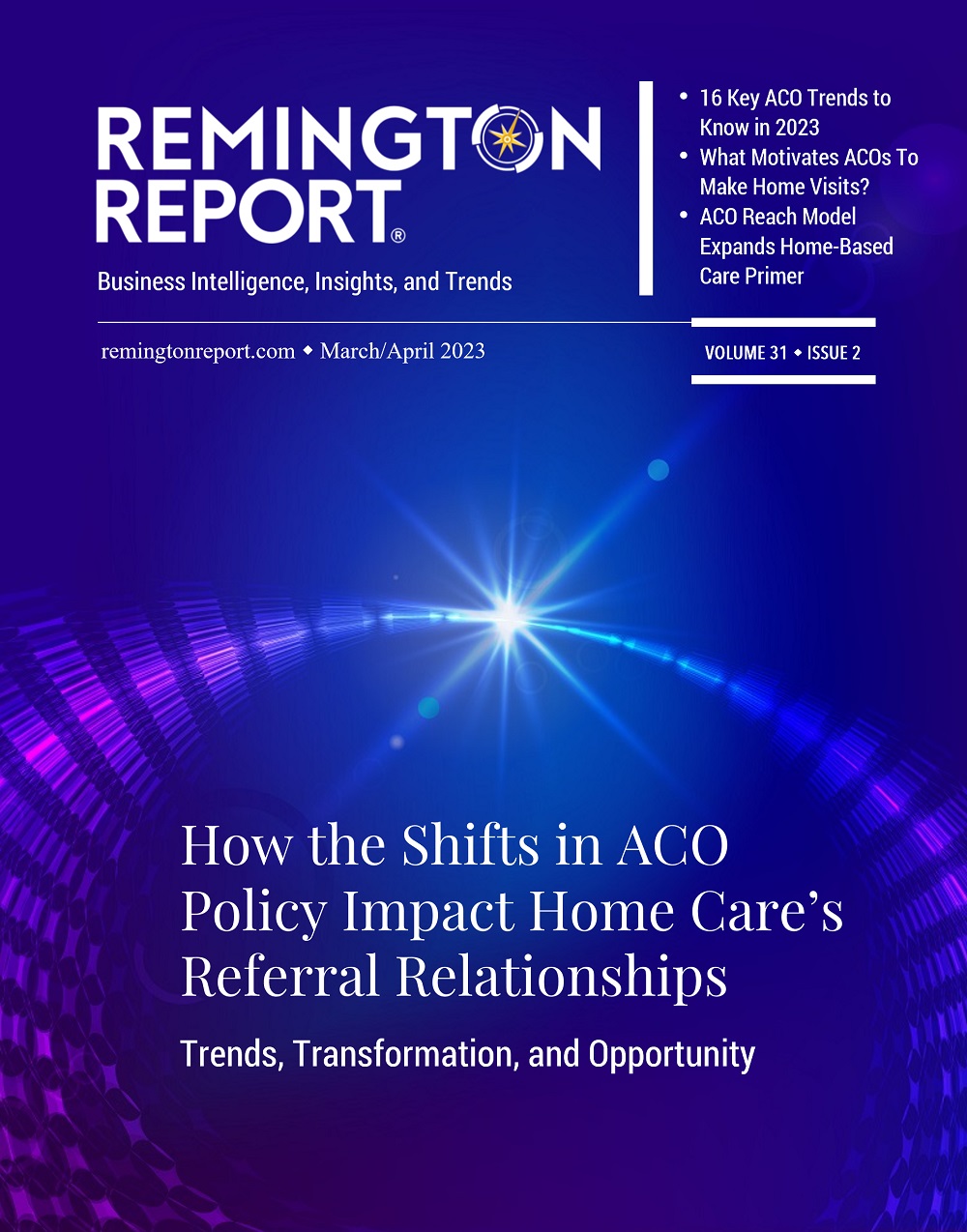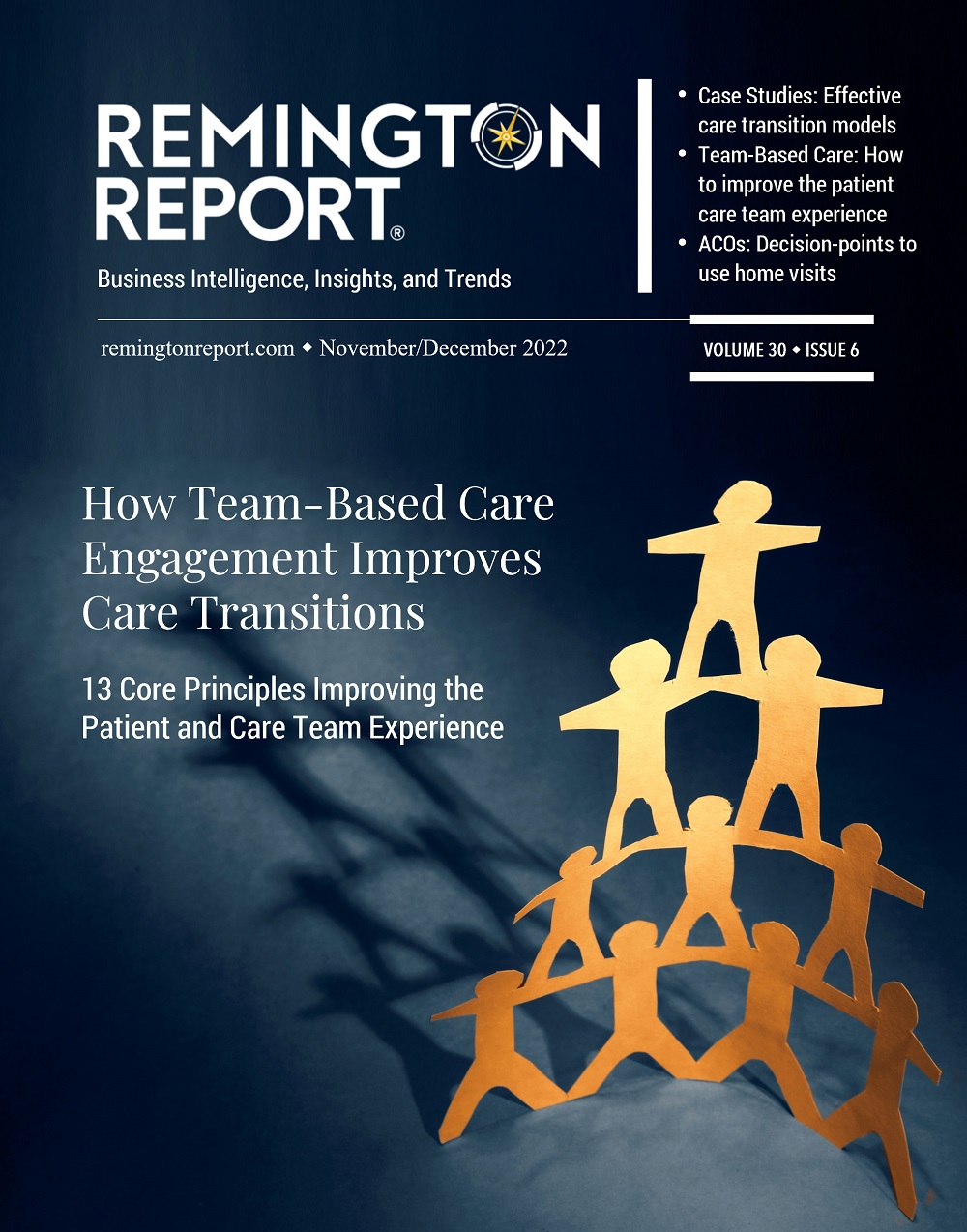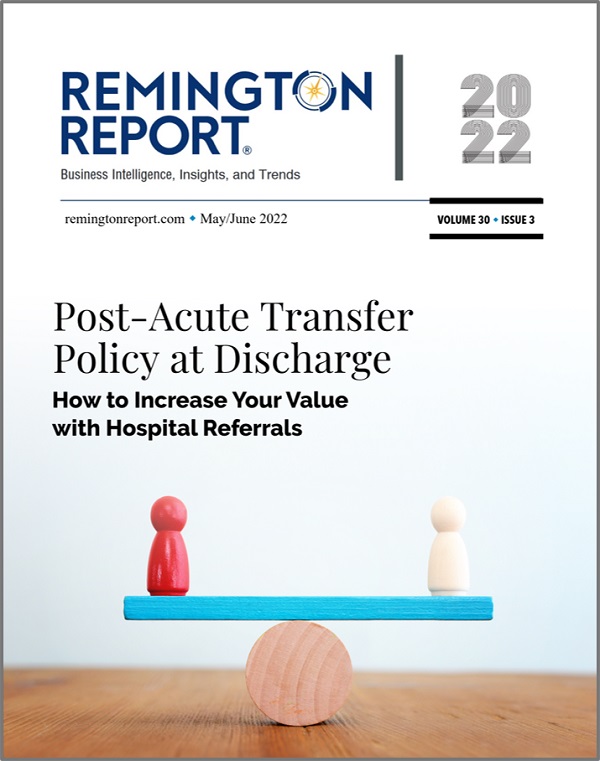Post-Acute Transfer Policy (PACT) at Discharge:
How To Increase Your Value with Hospital Referrals and PACT
In this issue of the Remington Report, we take a deep dive into the Post-Acute Transfer Policy (PACT), the impact to your organization, what it means to hospitals, and how to drive greater value as a hospital partner.
The scope of articles extends education to you and your organization to better understand this important topic.
Discharge Planning: How is a Post-Acute Transfer Defined?
There are several important characteristics to how a post-acute transfer takes place and the diverse ways hospitals are reimbursed. In this article, we provide a basic primer about post-acute transfers and include the list of MS-DRGs affected by post-acute transfers.
Post-Acute Transfer to a Home with Home Health Services
Medicare’s post-acute care transfer policy requires hospitals to apply the correct discharge status code to claims where patients receive home health services within three days of discharge. This includes the resumption of home health services in place prior to the inpatient stay. We dig deeper into other conditions important to your organization.
Post-Acute Care Transfer to Home Health Reduced Readmissions
A recent study shows an increased partnership value for care-at-home organizations and readmissions. This study ties back readmissions, reduced length of stay, and a decrease in expenditures when the post-acute transfer is used effectively.
Data Point: Discharge Planning Codes Identify Where the Patient is Being Transferred to
Discharge status code identifies where a patient is being discharged to at the end of their facility stay or transferred to such as an acute/post-acute facility. We provide the different codes used to identify the post-acute transfer.
OIG Reports
Two OIG studies indicate hospitals are not coding post-acute transfers accurately. This article provides the insights and ramifications of wrong coding.
The first 2016-2017 OIG study, titled “OIG Report: Medicare to Overpay More Than $267 Million for Hospital Inpatient Claims with Post-Acute-Care Transfers to Home Health Services,” indicates overpayments of $267 million to hospitals. The second 2019 OIG study titled, “Post-Acute Transfer Policy: The Overpayment for Discharges,” said Medicare improperly paid acute care hospitals $54.4 million in claims subject to the transfer policy.
Fast Facts About the Post-Acute Transfer Policy
A quick fact sheet can help your organization have an overview of the post-acute transfer policy.
This comprehensive look into post-acute transfers is a must read by all care-at-home organizations. The information provides a greater understanding between hospital partnerships and care-at-home organizations.

Lisa Remington is president and publisher of the Remington Report magazine and President of Remington’s Home Care Leadership Think Tank. She has worked with more than 10,000 organizations in both a consultancy role and an educator. Lisa monitors the complex key trends and forces of change to develop a correct strategic approach to de-risk decision-making and create sustainable futures across the healthcare continuum.










